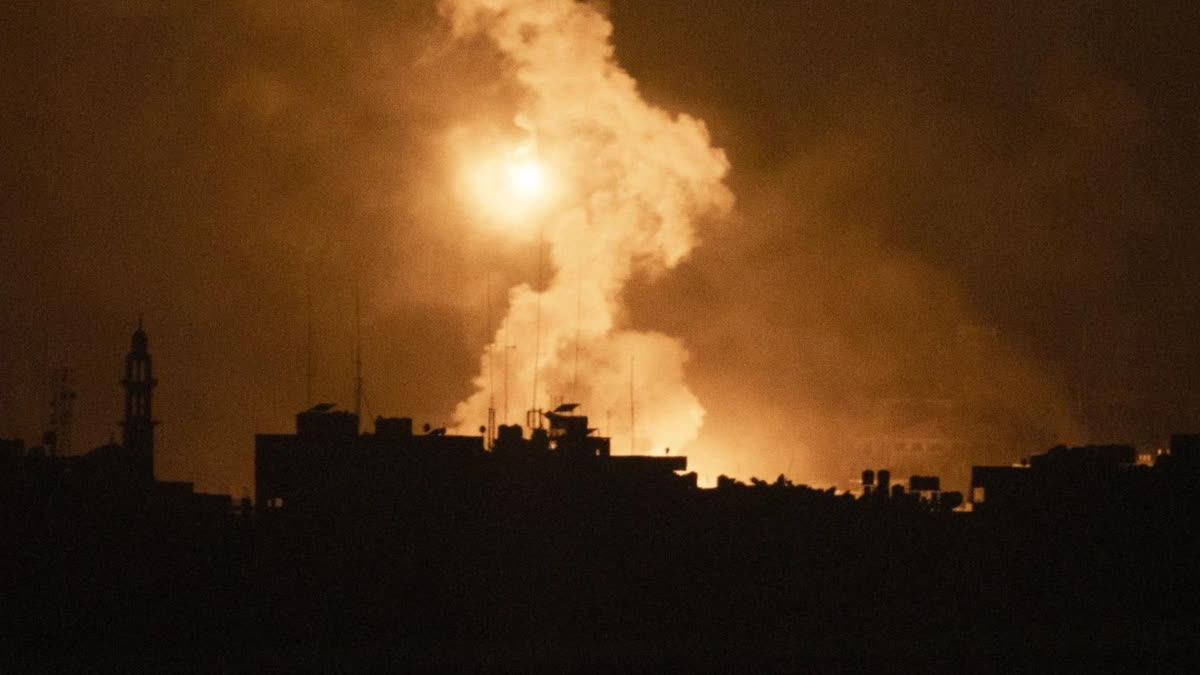Canberra : More than five weeks into Israel's war with Hamas, Prime Minister Benjamin Netanyahu has not outlined his future vision for Gaza. He has said many times the war will continue until Hamas is eradicated. But his battle plan for achieving that objective is far from clear. As calls grow louder around the world for a ceasefire, Israel is finding itself under increasing pressure to respond.
This is placing more scrutiny on Netanyahu's overall strategy for prosecuting the war and what could happen after it's over. Constantly in the background of Israel's military campaign is the fate of more than 200 hostages Israelis and other nationals held by Hamas. Netanyahu has said there will be no ceasefire until all the hostages are released. Hamas has responded that no hostages will be released in advance of a ceasefire.
Neither side shows signs of budging and Hamas has now suspended negotiations over hostage releases because of Israel's siege of Al Shifa hospital, Gaza City's main medical centre. Israel says a Hamas complex is hidden in tunnels underneath the hospital a claim Hamas denies.
Most of Gaza's population is now crowded into the southern part of the strip. Some of Hamas' key leaders are likely hiding there, raising another pertinent question as the war drags on. How will the Israeli Defence Forces (IDF) succeed in their mission of eradicating Hamas if its operatives are hiding among civilians in such a crowded area? Netanyahu has given no public indication.
Growing US-Israeli frictions- With so many key questions left unanswered, there is a growing disconnect between Netanyahu and the Biden administration in the United States. President Joe Biden and Secretary of State Antony Blinken have both said Israel should not reoccupy Gaza after the war. They have also indicated a preference for the Palestinian Authority, led by Mahmoud Abbas, to extend its authority to Gaza after Hamas' removal.
By contrast, Netanyahu has said Israel will need to retain control over security in Gaza after the war. Moreover, he has rejected the Palestinian Authority as a successor administration to Hamas for various reasons, including the fact it has not issued an unequivocal condemnation of Hamas' attack on Israel.
Netanyahu's balancing act- Netanyahu's planning seems to be edging towards a demilitarised Gaza with IDF forces based outside the strip, ready to re-enter the enclave when any security threat to Israel is detected. But he does not seem to be addressing the risk that a power vacuum following Hamas' removal might be filled by another militant group, such as Palestinian Islamic Jihad, which would certainly not be to Israel's liking.
Nor has he addressed the probability that disarming those Palestinians who are already radicalised will only be a partially effective exercise. The problem with understanding Netanyahu's thought process is that he is dealing with several imperatives simultaneously.
Appeasing hardline members of his government- The coalition government he leads is the most right-wing in Israel's history. Though the influence of extremists has been diluted by the addition of the centrist Benny Gantz to the war cabinet, Heritage Minister Amihai Eliyahu still suggested Israel might use a nuclear weapon against Gaza.
He was repudiated by Netanyahu, but the comment was indicative of hardline sentiment that remains in the government. After the war, Netanyahu doubtless hopes to resume governing with this coalition, so he must take their interests into account when it comes to formulating a post-war plan for Gaza. (The Conversation)
Read More
Explained: Why Myanmar is in a political quagmire even two years after coup
UK PM Rishi Sunak fires Suella Braverman, James Cleverly new home secretary



